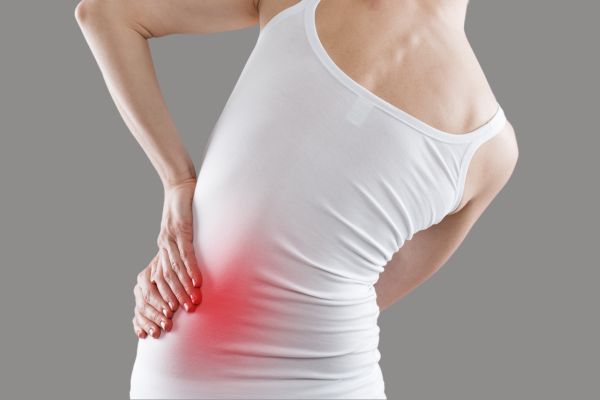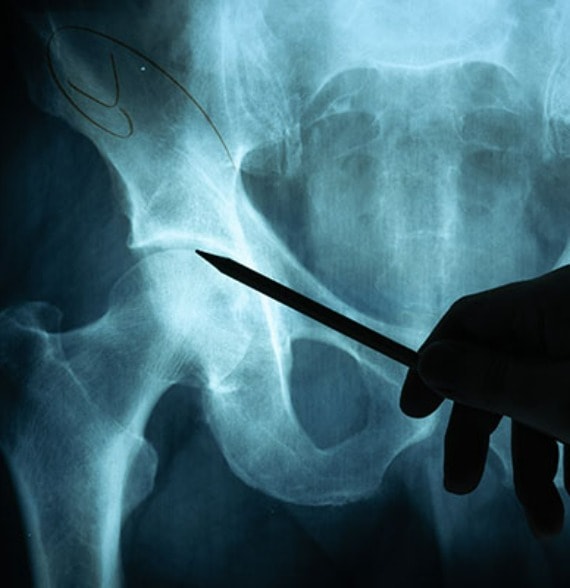Schedule An Appointment With Us
Are Your Symptoms Affecting Your Quality Of Life?
Consult our MOH-accredited orthopaedic surgeon for an accurate diagnosis & personalised treatment plan.
MBBS
MRCSEd
MMED (Ortho)
FRCSEd

Avascular necrosis of the hip, also known as hip osteonecrosis, is a condition characterised by the disruption of blood flow to the femoral head, the “ball” part of the hip joint. This disruption leads to the death of bone tissue, a process that can result in the eventual collapse of the bone. If untreated the bone can lose its smooth shape, leading to severe arthritis.
While avascular necrosis can affect different bones in the body, such as those in the shoulders, knees, and ankles, it most commonly occurs in the hip.
Avascular necrosis of the hip occurs due to a disruption in the blood supply to the femoral head. This disruption can stem from a variety of causes and risk factors:
In the early stages, avascular necrosis of the hip may not exhibit any symptoms. As the condition advances, the following symptoms and signs typically emerge:

Diagnosing avascular necrosis of the hip involves a combination of medical history review, physical examination, and imaging tests.
Schedule An Appointment With Us
Consult our MOH-accredited orthopaedic surgeon for an accurate diagnosis & personalised treatment plan.
In the early stages of avascular necrosis of the hip, several non-surgical treatment options can be considered. These aim to relieve pain and may slow the progression of the disease.
Medications |
The use of bisphosphonates and anti-inflammatory medications can help manage pain and reduce inflammation. |
Lifestyle Changes |
Modifications in daily activities and habits, including reducing or eliminating alcohol consumption and smoking, can play a role in managing the condition. Exercise can also help strengthen hip muscles and improve the range of motion. |
Using Walking Aids |
Hip specialists may suggest using crutches, canes, or walkers to lessen the weight placed on the affected hip, providing relief from pain. |
Avascular necrosis often requires surgical treatment, especially in its advanced stages. These procedures should be performed promptly, to effectively manage the condition.
While it may not be possible to completely prevent avascular necrosis of the hip, certain strategies can help reduce the risk.

MBBS
MRCSEd
MMED (Ortho)
FRCSEd
With over 18 years of experience, Dr Poh Seng Yew is an orthopaedic surgeon specialising in hip, knee, shoulder and elbow surgery, sports medicine, and trauma surgery.




Weekdays: 9.00am – 5.00pm
Saturdays: 9.00am – 1.00pm
Sundays and Public Holidays: Closed
Please leave us a message, and we will be in touch with you shortly.
Untreated avascular necrosis of the hip can lead to long-term chronic pain and severe arthritis, with the hip bone eventually collapsing. This deterioration can affect mobility, often necessitating hip replacement surgery to remove and replace the damaged joints. Early intervention by hip specialists can help manage the condition and prevent severe complications.
Recovery time varies depending on the treatment method. For non-surgical treatments or early-stage interventions like core decompression or bone grafting, recovery can take several weeks to a few months. In advanced cases requiring total hip replacement, recovery may take up to 6 months. The individual’s overall health and fitness level influence the recovery duration.
When sitting with avascular necrosis of the hip, try to maintain a position that minimises hip stress. Use a chair with good back support and keep the knees at the same level or slightly lower than the hips. Avoid crossing legs or sitting in low chairs that can strain the hip joint. Consulting with our hip specialist can provide more personalised sitting strategies.
The progression rate of avascular necrosis of the hip varies. Typically, it develops over several months to years, depending on the underlying cause and the effectiveness of the treatment. Regular monitoring by a hip specialist can help manage the condition’s progression effectively.
While diet alone cannot cure avascular necrosis, it can play a supportive role in treatment. A balanced diet rich in nutrients can aid overall bone health. Try to reduce alcohol consumption and maintain healthy cholesterol levels.